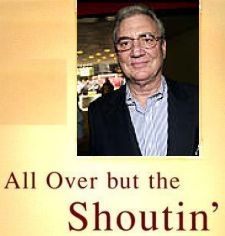… it becomes clearer and clearer that fundamentally solitude is nothing that one can choose or refrain from. We are solitary. We can delude ourselves about this and act as if it were not true. That is all. But how much better it is to recognize that we are alone; yes, even to begin from this realization. — poet Rainer Maria Rilke
 Writerly solitude, on a park bench alone |
For many, the most salient aspect of writing is the time that is spent alone in front of the computer (or, in some cases, typewriter, or writing pad). In a world that demands some form of sociability from us, how wonderful the notion can be of simply spending some time alone, seeking only one’s own counsel.
There is a certain amicable integrity to solitude, as well.
If you’ve been a reader of VanRamblings for awhile, the thought must have occurred to you as to why the sobriquet VanRamblings was chosen as the identifying URL. Well, if you haven’t figured it out already, this writer tends to ramble; the rambling on VanRamblings tends to be reflected in run-on sentences, paragraphs, and brief essays — thus (Van)rambling(s).
By extension, if one rambles when writing composition, there’s not much of a logical leap that need be made to imagine the nature of the personal, communicative interaction one might enjoy with such a person. Which is to say, I ramble in public, as well: on and on, words and sentences, paragraphs and whole essays of thoughts. Writing — quite pleasingly — affords me an opportunity to gather my thoughts, edit my presentation, and afford the person(s) with whom I am communicating the opportunity to read, or listen, to those thoughts (and, if the reader is not captivated by my thoughts, the next web page is only a matter of a click away).
The Globe and Mail’s Leah McLaren ruminates on the solitary life in her Saturday newspaper column, in which she quotes a friend as saying, “I just need to be alone a lot. It’s my absolute favourite thing.” Me, too.


 Speaking to a crowd of about 200 at Tampa Bay, Florida’s Wyndham Westshore, legendary Washington Post reporter Carl Bernstein
Speaking to a crowd of about 200 at Tampa Bay, Florida’s Wyndham Westshore, legendary Washington Post reporter Carl Bernstein